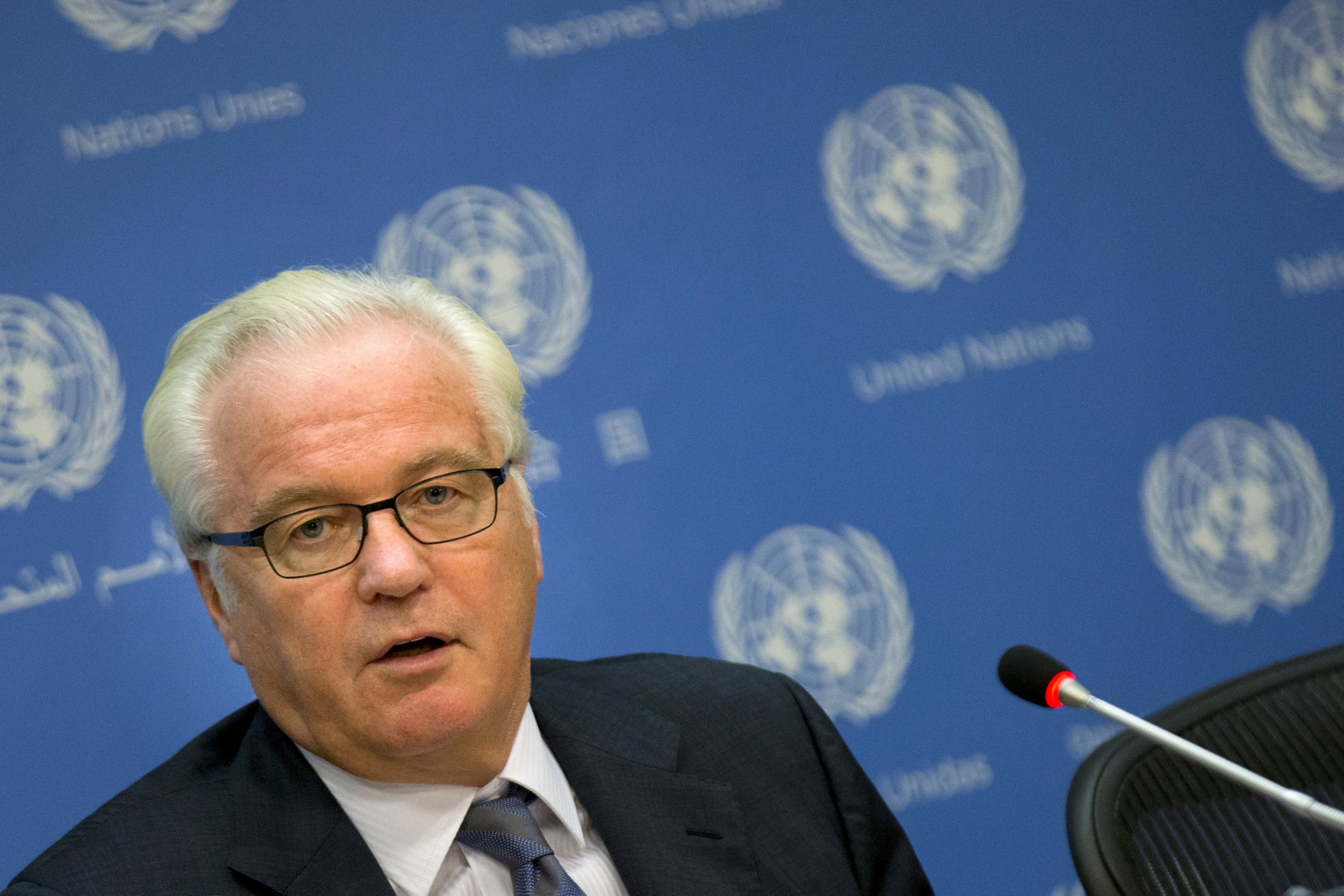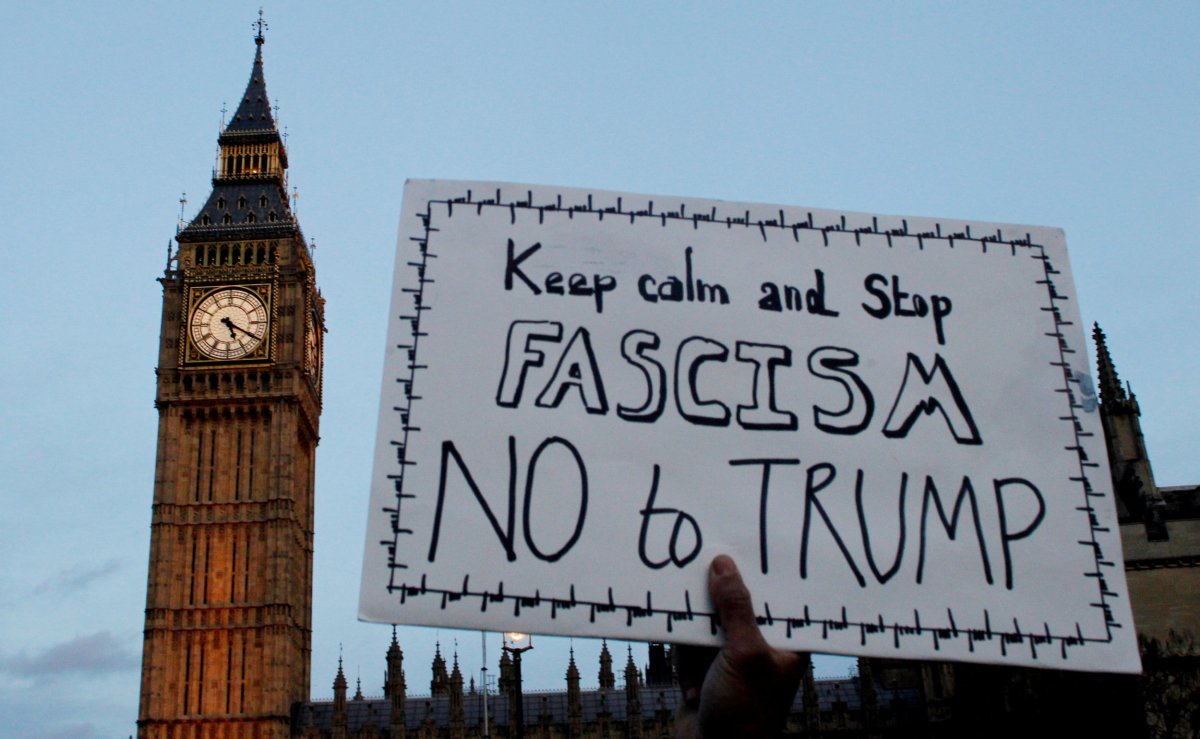
Russia's combative ambassador to the United Nations, Vitaly Churkin, died suddenly in New York on Monday after being taken ill at work, the Russian Foreign Ministry said. The ministry gave no details on the circumstances of his death but offered condolences to his relatives and said the diplomat had died one day before his 65th birthday. It declined to comment on reports that Churkin had been taken to a hospital shortly before his death.
A U.S. government official, who was not authorized to speak publicly on the case, said that Churkin had died of an apparent heart attack.
A federal law enforcement official, also speaking on condition of anonymity, said that there appeared to be nothing unusual about the ambassador's death.
The New York Post quoted unnamed sources as saying Churkin had been rushed to a Manhattan hospital from the Russian embassy after falling ill with a cardiac condition.
President Vladimir Putin was deeply upset by the news and had greatly valued Churkin's professionalism and diplomatic talent, Russian news agencies quoted the Kremlin as saying.
Tass news agency quoted Churkin's deputy, Pyotr Ilyichev, as saying: "The loss sustained by Russia is grave and irreplaceable. Ambassador Churkin remained at his work post until the last minute. He devoted his whole life to defending the interests of Russia and was to be found on the very front lines and in the most stressful posts."
Foreign ministry spokeswoman Maria Zakharova said on Facebook: "Great diplomat. Extraordinary personality. Colorful man."
Churkin was a pugnacious defender of Russian policy, notably its intensive bombing of the Syrian city of Aleppo last year to crush rebels opposed to President Bashar al-Assad.

When then-U.S. envoy to the United Nations, Samantha Power, accused Syria, Russia and Iran last year of bearing responsibility for atrocities there, Churkin said she was forgetting the United States' own track record in the Middle East. "The weirdest speech to me was the one by the U.S. representative who built her statement as if she is Mother Teresa herself. Please, remember which country you represent. Please, remember the track record of your country," he said.
Farhan Haq, deputy spokesman for the U.N. secretary-general's office, on Monday said: "He has been such a regular presence here that I am actually quite stunned. Our thoughts go to his family, to his friends and to his government." A moment of silence was held at an informal session of the U.N. General Assembly.
His diplomatic counterparts weighed in with tributes. "In my short time at the United Nations, Ambassador Vitaly Churkin showed himself to be a gracious colleague," the U.S. ambassador to the world body, Nikki Haley, said in a statement. "We did not always see things the same way, but he unquestionably advocated his country's positions with great skill. We send our prayers and heartfelt condolences to lift up his family and to the Russian people," she said.
France's ambassador to the United Nations, Francois Delattre called Churkin "one of the most talented diplomats I have ever met."
British Ambassador Matthew Rycroft wrote on Twitter: "Absolutely devastated to hear that my friend and colleague Vitaly Churkin has died. A diplomatic giant & wonderful character."
Tributes poured in from his U.S. counterparts in the Obama administration. Haley's predecessor, Powers, described Churkin on Twitter as a "diplomatic maestro and deeply caring man who did all he could to bridge US-RUS differences."
Churkin first came to prominence as foreign ministry spokesman for the Soviet Union from 1990 until the collapse of the superpower the following year. Despite the pressure of events, he appeared to revel in the attention of the Western correspondents who mobbed him at briefings, and was happy to respond to them at length in fluent English. He went on to serve as deputy Russian foreign minister and ambassador to Belgium and then to Canada, eventually moving to the United Nations in 2006.
Uncommon Knowledge
Newsweek is committed to challenging conventional wisdom and finding connections in the search for common ground.
Newsweek is committed to challenging conventional wisdom and finding connections in the search for common ground.
About the writer
To read how Newsweek uses AI as a newsroom tool, Click here.








